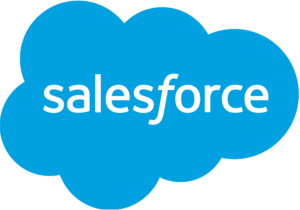Salesforce Sales Cloud stands as a beacon of innovation in the realm of customer relationship management (CRM) solutions. Renowned for its cutting-edge features and unparalleled flexibility, Salesforce Sales Cloud empowers sales teams to drive revenue growth and foster meaningful customer relationships. With robust tools for lead management, opportunity tracking, and sales forecasting, Salesforce Sales Cloud provides a comprehensive platform to streamline sales processes and maximize productivity. Whether you’re a small business or a large enterprise, Salesforce Sales Cloud offers scalability and customization to suit your unique needs, making it a top choice for businesses worldwide.
Salesforce Sakes Cloud Overview
Key Features
- Contact Management: Salesforce Sales Cloud provides a centralized database for storing and managing customer contact information, including names, addresses, phone numbers, and email addresses. This feature ensures that sales representatives have easy access to relevant customer data.
- Opportunity Management: Sales Cloud allows users to track sales opportunities through various stages of the sales pipeline. Sales representatives can efficiently manage deals, prioritize leads, and forecast revenue accurately using this feature.
- Lead Management: With Sales Cloud, businesses can capture, track, and nurture leads effectively. The platform offers tools for lead assignment, qualification, and automated lead scoring, streamlining the lead management process and increasing conversion rates.
- Sales Collaboration: Sales Cloud fosters collaboration among sales teams through features such as real-time chat, file sharing, and activity feeds. This promotes better communication and teamwork within the organization, leading to improved sales performance.
- Sales Analytics: Salesforce Sales Cloud provides robust analytics and reporting capabilities, allowing businesses to gain valuable insights into their sales performance. Users can create custom reports and dashboards to track key metrics, monitor progress, and identify trends, enabling data-driven decision-making.
- Mobile Accessibility: Sales Cloud is accessible via mobile devices, enabling sales representatives to access customer information, manage opportunities, and collaborate with team members on the go. This mobile accessibility enhances productivity and allows sales teams to stay connected even while away from the office.
- Integration Capabilities: Salesforce Sales Cloud seamlessly integrates with other Salesforce products as well as third-party applications, allowing businesses to extend its functionality and streamline their sales processes. This integration capability ensures that Sales Cloud can adapt to the unique needs and workflows of each organization.
- Workflow Automation: Sales Cloud offers powerful workflow automation features that enable users to automate repetitive tasks, such as sending follow-up emails, updating records, and assigning tasks. By automating these manual processes, Sales Cloud helps save time, reduce errors, and increase overall efficiency.
Pros & Cons
Pros:
- Comprehensive Features: Salesforce Sales Cloud offers a comprehensive set of features that cover all aspects of sales management, from lead generation to deal closure.
- Scalability: Sales Cloud is highly scalable and can accommodate the needs of businesses of all sizes, from small startups to large enterprises. As businesses grow, Sales Cloud can scale with them, ensuring that they continue to meet their evolving sales needs.
- Customization: Sales Cloud allows for extensive customization, enabling businesses to tailor the platform to their specific requirements and workflows. This customization capability ensures that Sales Cloud can adapt to the unique needs of each organization, maximizing its effectiveness.
- Integration Ecosystem: With a vast ecosystem of third-party integrations and the ability to integrate with other Salesforce products, Sales Cloud offers flexibility and extensibility. Businesses can integrate Sales Cloud with their existing systems and tools, ensuring seamless data flow and improving overall efficiency.
- Strong Analytics: Sales Cloud provides robust analytics and reporting capabilities, allowing businesses to gain valuable insights into their sales performance. With customizable reports and dashboards, businesses can track key metrics, identify trends, and make data-driven decisions to drive growth.
Cons:
- Complexity: Salesforce Sales Cloud can be complex to set up and configure, requiring expertise or assistance from Salesforce consultants for optimal implementation. The complexity of Sales Cloud may pose challenges for businesses without experienced administrators or IT resources.
- Cost: The cost of Salesforce Sales Cloud can be relatively high, especially for small businesses or startups with limited budgets. While Sales Cloud offers a range of pricing options to accommodate businesses of different sizes, the overall cost of ownership can still be significant, particularly when factoring in additional services and customization.
- Learning Curve: Users may face a steep learning curve when initially using Sales Cloud, especially if they are not familiar with CRM systems or Salesforce’s interface. Training and onboarding may be necessary to ensure that users can effectively leverage Sales Cloud’s features and capabilities.
- Customization Complexity: While customization is a strength of Sales Cloud, it can also be a challenge for users without technical expertise. Extensive customization may require specialized skills or assistance from Salesforce developers, adding complexity and cost to the implementation process.
- Dependency on Internet Connection: Since Sales Cloud is a cloud-based platform, users depend on a stable internet connection for access. This dependency may pose challenges in areas with poor connectivity or during periods of downtime, potentially impacting productivity and efficiency.
Price Detail
Salesforce Sales Cloud offers several pricing tiers to accommodate businesses of different sizes and needs. The pricing structure typically includes:
- Essentials: The Essentials tier is designed for small businesses and offers basic CRM functionality at an affordable price. It includes essential features such as contact management, opportunity tracking, and mobile access.
- Professional: The Professional tier includes additional features such as automation, customization, and advanced reporting capabilities. It is suitable for growing businesses that require more robust CRM functionality.
- Enterprise: The Enterprise tier offers advanced features for larger businesses, including workflow automation, territory management, and advanced analytics. It is designed for businesses with complex sales processes and high-volume sales operations.
- Unlimited: The Unlimited tier offers the most comprehensive set of features, including unlimited support, custom apps, and additional storage. It is suitable for large enterprises with complex sales requirements and a need for scalability and flexibility.
Prices for Salesforce Sales Cloud vary depending on factors such as the number of users, selected features, and any additional services or customizations required. Businesses typically pay a monthly subscription fee per user, with discounts available for annual contracts and volume purchases. Additionally, there may be additional costs for implementation, training, and ongoing support services. For detailed pricing information, businesses are encouraged to contact Salesforce sales representatives or visit the Salesforce website.




